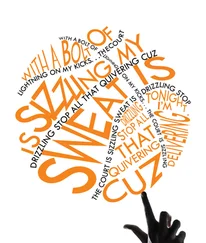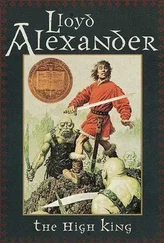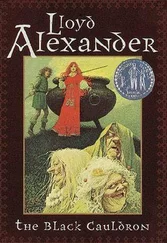I heard the exit door open. Then five loud shots echoed through the passageway. Soon the man returned. I stepped back into the shadows, moving away from them. “The puppies are dead,” the man told Hitler. “You no longer have to worry.”
I walked quickly, hoping to get away from what I’d witnessed. Death offered its cold hand everywhere in the bunker, even for the dog who meant so much to Hitler.
My confinement clawed at me. I walked back to the Vorbunker and toward the long connecting hallway that led to the series of tunnels running east–west under the New Chancellery. The SS guard asked me what I was doing. I was in no mood to lie. I told him I was going crazy in the bunker and needed to take a walk. He nodded, smiled sadly as if he knew what I was going through, and waved me on.
I remembered little from the night of the attack on Irmigard’s apartment. When I’d arrived, Cook had led me to the Vorbunker. Now I saw the horror that had been thrust upon the German people. Medical facilities had been constructed in several rooms. The smell of blood and flesh permeated the corridor. Several doctors moved from table to table as if animated by ghostly puppet strings. Their aprons were stained red and splattered with human tissue.
One of the doctors shouted orders to a nurse who looked lost amid the daunting task confronting her. A hundred patients, many with severed limbs, burns or open wounds, waited for them. Perhaps there were more than a hundred. The wounded lay like mannequins on the tables, covered by bloody sheets or naked in their pain. A doctor cut through the right arm of a soldier just below the shoulder. He held up the limb and then threw it into a metal tub overflowing with severed legs, arms, hands and feet. My stomach churned at the bloody sight as the stench of death filled my nostrils.
The doctor who had performed the amputation called out to me, “Can you help us?”
At first, I didn’t know what to say. I stared at him.
“We need your help,” he pleaded. “People are dying.”
I looked down the passageway. Rows of silent refugees, some of whom were decorated Party members who apparently thought they had a right to escape what others were suffering, sat on the floor looking crushed and sullen. They had not offered to help the doctors. I wondered why. Perhaps they had seen enough blood or they had no taste for the tragedy unfolding around them. I started to walk away from the makeshift hospital and then stopped. A strange question filled my head: What if I’m able to find out about Irmigard and her family? I turned and wound my way through the maze of tables to the doctor who asked for my help.
Atortured hope also arose in me as I walked to the doctor. What if Karl wasn’t dead and he was here in the bunker? As remote as that possibility was, I clung to it for an instant.
But any hope I had of finding Karl among the hundreds of wounded was soon dashed. I looked at each of the faces filled with pain. He was not among them. The doctor shrugged when I asked him about Irmigard and my old neighborhood.
“I’d say their chances of survival were slim,” he said. “We haven’t been able to get east for weeks.”
I had little time to chastise myself for asking such questions. I shook off my sadness and asked the doctor how I could help.
I changed bandages, scrubbed bedding in a washtub, held men’s and women’s hands as the doctors cut into them. Many times I had to look away because my stomach, and heart, could not bear their screams. Anesthesia was in short supply and only the most seriously wounded were given a dosage. One man administered whiskey, with the doctors’ blessings, to those half-crazed with pain.
“I want to die,” one soldier who had lost both legs from a Russian shell told me. Another less seriously wounded echoed a similar urge to end his life. I tried my best to cheer them up, making no mention of the Reich. Rather, I told them how important they were—how they were needed on this earth. As I visited others, Hitler and his suicide pact came to mind and I marveled at how the mood of the soldiers and citizens had fallen into utter despair, mirroring the Reich leader’s psyche.
As the hours passed, the toil of struggling with the wounded, and lifting bodies, exhausted me. I found an empty chair and collapsed in it for a few minutes. One of the doctors saw me and said, “Thank you for your help. Get something to eat.”
“What time is it?” I asked.
“After nine in the evening,” he replied.
I walked back to the Vorbunker and wiped the blood from my hands. Gore spotted my dress. I bumped into Cook in the passageway. She grabbed me by the arm and dragged me along. “We’re to meet the Führer,” she said. She rushed us along until we came to the large conference room in the lower bunker. Hitler stood inside, hunched over a large map of Germany spread out across the table. His two secretaries, who had been summoned as well, stood across from him. As we entered, he took off his glasses with his shaking left hand and placed them on the table. He wore the tan uniform jacket. I’d not seen him in it since we’d left the Berghof.
All of us lined up in a row and waited for him to speak. A sad smile crossed his face and he said, “I want to thank you for your loyal service to your Führer.” He put his right hand into his jacket pocket and walked toward us with an unsteady gait. He kept his left hand on the table for balance. “The others will know soon, but I am releasing you from your oath… .”
He continued to speak, but we could barely hear his mumbling voice. Yet we all knew what was to come. Still, I thought of killing him.
His fingers shook in his pocket, knocking the fabric in and out in frenzied punches. Finally, he withdrew his hand and opened it. Four cyanide ampoules, their copper casings glinting in the light, rested in his palm. He gave us each one.
“I wish I could have presented you a better going-away gift,” he said. “If the Russians break in, you may prefer this to a forced captivity and their beastly ways.”
His eyes drifted from us and focused beyond the walls, as if we were not in the room. We were left standing with the poison in our hands as he shuffled off to his quarters.
Frau Junge wiped away tears and we dispersed.
“I have no intention of using this,” Cook said as we walked away. I held mine in my hand, unsure of whether I should use it on myself or Hitler. At my bed, I put the capsule under my pillow and lay down. The next thing I knew I was awakened by shouting and laughter. I got up and, bleary-eyed, staggered toward the canteen. At least twenty of Hitler’s staff, including officers, were holding a party. A pile of records sat next to a phonograph. The music blared through the room and mixed with the raucous clinking of glasses. Several green champagne bottles floated across the crowd, passed by eager hands.
A drunken SS officer approached me, unfazed by my unkempt appearance and blood-spotted dress, which I had slept in. His pants were wet with champagne and his exposed chest showed through his open shirt and uniform jacket. He collapsed against the door and put his hand on my shoulder. “Want to dance?” He swayed erratically with the music.
I was afraid he would topple over upon me.
“Live a little. We only have a few hours left.” He pointed to the ceiling. “The bastards are only a few blocks away. Maybe over us now. Screw them.” He winked and put his face close to mine. His breath smelled of a horrid mixture of cigarettes and champagne. “How about it, how about a little screw? What have you got to lose?”
I knocked his hand away. “Thanks for the offer, but no.” I attempted to move past him, but he grabbed my arm. I kicked him in the shin and he winced in pain.
Читать дальше












